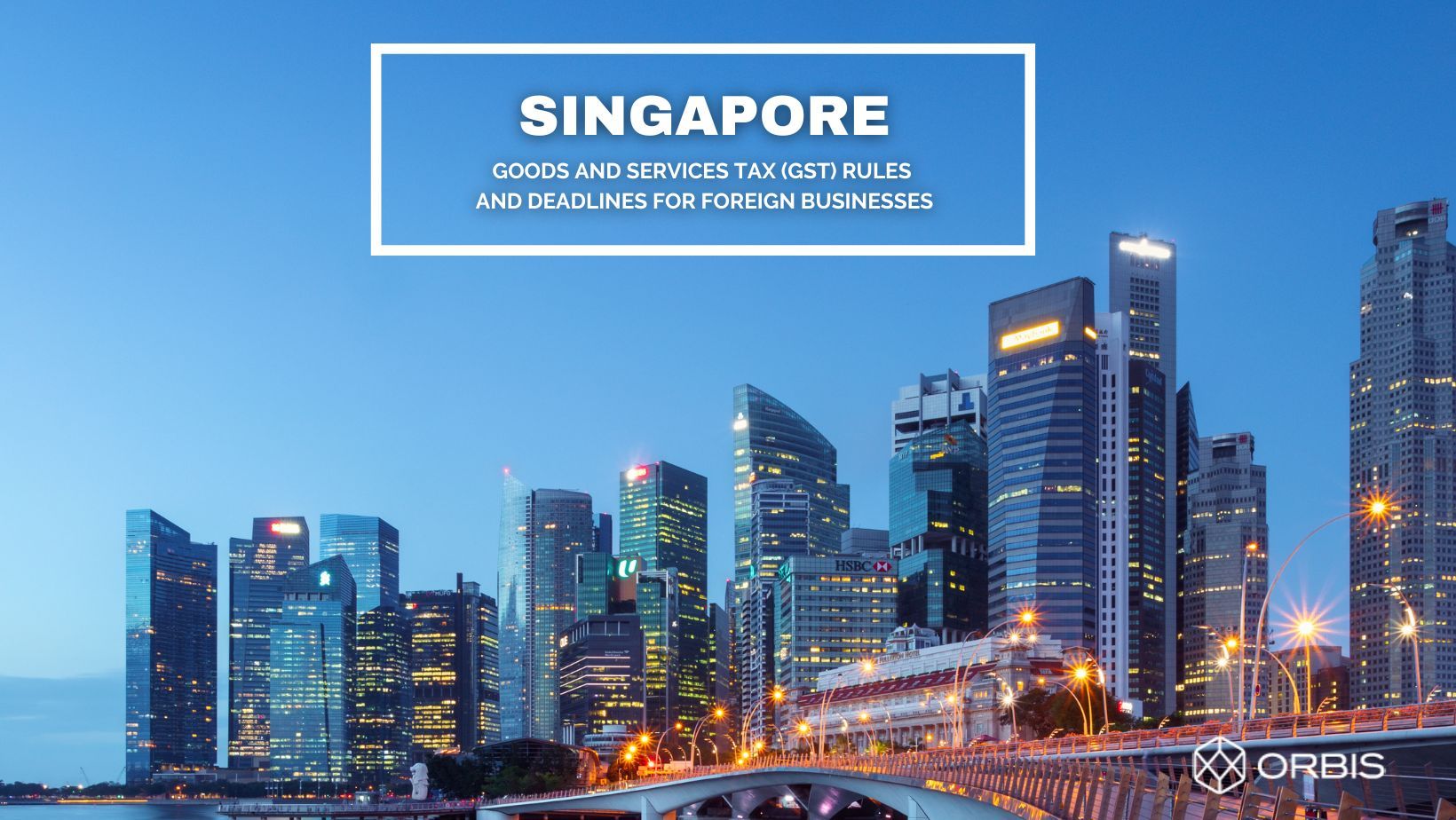When must overseas vendors register for GST in Singapore?
Overseas businesses selling to Singapore customers must register for Goods and Services Tax (GST) when two conditions are met:
- within any 12-month period: global turnover exceeds S$1 million (approximately €680,000), and
- sales to Singapore customers surpass S$100,000 (approximately €68,000).
Registration is mandatory within 30 days of crossing both thresholds.
Voluntary registration is also possible for businesses expecting to meet these limits soon, helping to avoid last-minute compliance issues.
What types of sales trigger GST requirements?
GST applies to two main categories:
- Remote services (digital and non-digital), such as software subscriptions, online training, and consultancy services delivered from abroad but consumed in Singapore.
- Low-value goods imported by air or post, valued at S$400 (265 EUR) or less. Higher-value or dutiable goods follow standard import GST rules.
If you sell through an online marketplace, IRAS may designate the platform as the “deemed supplier,” shifting GST collection and remittance responsibilities to the operator.
How do overseas vendors register and report GST?
Registration is done online via the IRAS MyTax Portal. While a local subsidiary is not required, appointing a Singapore-based contact can simplify communication and recordkeeping.
Registered vendors must file quarterly GST returns within one month of each reporting period, in Singapore dollars, and keep records for at least five years.
How should GST be charged and remitted
GST (9%) must be applied at the point of sale to Singapore-based customers.
Invoices must include the vendor’s GST registration number and the tax amount.
Collected GST is converted to Singapore dollars, reported, and remitted quarterly through the MyTax Portal.
How should GST be charged and remitted What are the penalties for Non-Compliance?
Late payments incur a 5% penalty plus 2% monthly interest, up to 50% of the tax due.
Deliberate evasion can result in fines up to S$10,000 (US$7,300), imprisonment for up to seven years, and penalties of up to 300% of the tax evaded. IRAS uses data analytics to detect noncompliance, but voluntary disclosure may reduce penalties.
If you are still uncertain about your GST obligations or need support with registration, compliance, or filings, contact us today (contact@orbis-alliance.com). We’ll review your sales data, assess your requirements, and guide you through every step, so you can operate with confidence in Singapore.

 English
English
 Français
Français  Español
Español 